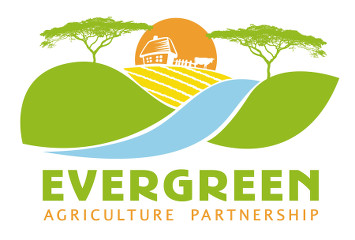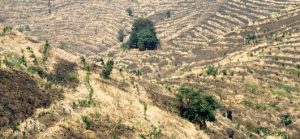 The Sustainable Forest Management module is intended for people involved in afforestation and reforestation program. The module establishes the difference between forest restoration and rehabilitation and sets out the main steps involved in both. The module provides basic and more detailed information on forest restoration and rehabilitation, as well as links to key tools and case studies of effective restoration and rehabilitation efforts.
The Sustainable Forest Management module is intended for people involved in afforestation and reforestation program. The module establishes the difference between forest restoration and rehabilitation and sets out the main steps involved in both. The module provides basic and more detailed information on forest restoration and rehabilitation, as well as links to key tools and case studies of effective restoration and rehabilitation efforts.
Monthly Archives: February 2017
Sustainable Forest Management (SFM) Toolbox
Can We Restore 350 Million Hectares by 2030?
Originally published on the World Resources Institute website.
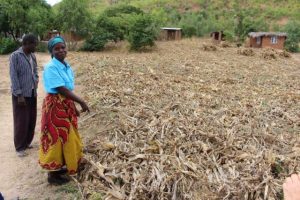 With growing awareness of the economic costs of land degradation, political leaders are adopting ambitious targets to restore degraded forests and agricultural land. Building on the interest in forest landscape restoration generated by the Bonn Challenge, in 2014, countries adopted the New York Declaration on Forests to restore 350 million hectares (865 million acres) of degraded forests and agricultural land by 2030. That’s an area bigger than the size of India.
With growing awareness of the economic costs of land degradation, political leaders are adopting ambitious targets to restore degraded forests and agricultural land. Building on the interest in forest landscape restoration generated by the Bonn Challenge, in 2014, countries adopted the New York Declaration on Forests to restore 350 million hectares (865 million acres) of degraded forests and agricultural land by 2030. That’s an area bigger than the size of India.
Several regional initiatives focused on galvanizing further political and financial support for implementing restoration at scale have emerged, like Initiative 20×20 to restore 20 million hectares (49 million acres) by 2020 in Latin America and the Caribbean, and the African Forest Landscape Restoration initiative (AFR100) to restore 100 million hectares (254 million acres) of degraded forests in Africa by 2030.
The question now is: How can we restore this massive amount of degraded and deforested landscapes? Evidence shows that we can—as long as we learn from the places showing early successes. Tree planting is key, but it’s not enough.
Quality climate data at the click of a button
Originally published on the ICRISAT website.
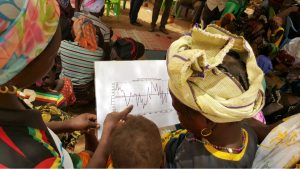 To increase the availability and accessibility of quality climate data in Mali an initiative titled ‘Enhancing National Climate Services’ (ENACTS) was launched recently. For the purpose, a workshop was held to introduce stakeholders to Mali weather station’s new data and web interface called the Mali Meteo Data Library and solicit their feedback.
To increase the availability and accessibility of quality climate data in Mali an initiative titled ‘Enhancing National Climate Services’ (ENACTS) was launched recently. For the purpose, a workshop was held to introduce stakeholders to Mali weather station’s new data and web interface called the Mali Meteo Data Library and solicit their feedback.
The ENACTS initiative seeks to address the problem of declining quality of station climate data. A security crisis in the northern half of the country adversely affected climate data availability, particularly since 2012, which was further compounded by the low density of the weather station networks.
The initiative focuses on the creation of reliable climate information suitable for national and local decision making. Its main objective is to improve simultaneously the availability, access and use of climate information. The crux of the approach lies in collaborative work with the National Meteorological Hydrological Services (NMHS), blending national observations with satellite and other proxy data to improve the quality of their database and extend wall-to-wall coverage on a 5km grid.
The challenge to be climate smart with the world’s agriculture
Originally published on the World Bank website.
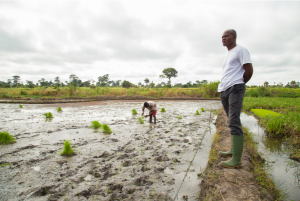 Here’s something you may not be aware of: It’s a statistic that matters in the face of two unrelenting challenges now facing the globe –how to turn the promises of last December’s historic Paris climate change agreement into reality and how to feed a growing global population.
Here’s something you may not be aware of: It’s a statistic that matters in the face of two unrelenting challenges now facing the globe –how to turn the promises of last December’s historic Paris climate change agreement into reality and how to feed a growing global population.
Already , and And we have to achieve that while delivering on the Paris agreement to keep the global temperature rise well below two degrees Celsius and to drive efforts to limit the temperature increase even further to 1.5 degrees Celsius above pre-industrial levels.
On a continent like Africa, we already know climate change is taking a toll on farmers seeking to feed their families and earn some income. Just consider West Africa, where shorter and more erratic rainy seasons and more frequent extreme weather events such as droughts and floods have impacted harvests. And according to projections,
To help them adapt to the changing climate, farmers in West Africa have been learning the benefits of “climate-smart agriculture” – an integrated approach that helps farmers grow more, be more resilient to climate change and reduce greenhouse gas emissions from livestock, crops, and land use change.
World Bank Scores Sustainable Energy Policies in 111 Countries
Originally published on the World Bank website.
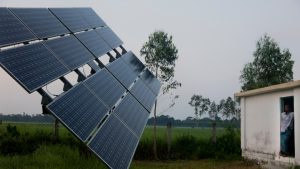
An increasing number of developing countries – Mexico, China, Turkey, India, Vietnam, Brazil, and South Africa – are emerging as leaders in sustainable energy, with robust policies to support energy access, renewables and energy efficiency, according to a new World Bank Report.
But there is huge room for improvement across every region in the world and particularly in Sub-Saharan Africa, says the report, entitled RISE (Regulatory Indicators for Sustainable Energy).
RISE is the first global policy scorecard of its kind, grading 111 countries in three areas: energy access, energy efficiency and renewable energy. The report is aimed at helping governments assess if they have a policy and regulatory framework in place to drive progress on sustainable energy and pinpoints where more can be done to attract private investments. RISE also enables countries to measure their performance against others, and will allow them to track progress over time.
“RISE will be an invaluable tool for policymakers, helping them to identify and bolster policies and regulations that spur the kind of investments needed to extend access to modern, affordable and reliable energy for all,” said Riccardo Puliti, Senior Director and Head of Energy and Extractives at the World Bank.
Innovation hub opens for agri-tech entrepreneurs
Originally published on the ICRISAT website.
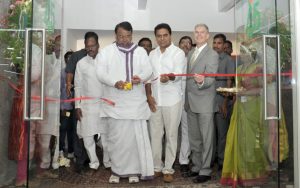 A creative space where agricultural tech entrepreneurs, scientists and technology experts can collaborate to innovate cutting edge ideas across the whole agriculture value chain for smallholder farmers, was inaugurated at the International Crops Research Institute for the Semi-Arid Tropics (ICRISAT).
A creative space where agricultural tech entrepreneurs, scientists and technology experts can collaborate to innovate cutting edge ideas across the whole agriculture value chain for smallholder farmers, was inaugurated at the International Crops Research Institute for the Semi-Arid Tropics (ICRISAT).
The innovation Hub (iHub) was opened by Telangana IT Minster Sri KT Rama Rao and Agriculture Minister Sri Pocharam Srinivas Reddy. “This is a very important opening for the welfare of farmers. We have to enhance the farmers’ incomes. Seventy per cent of people in India are in agriculture. I want to see farmers able to reduce their investments and increase productivity so they do not have to go for loans every year,” said Telangana Agriculture Minister Sri PS Reddy.
